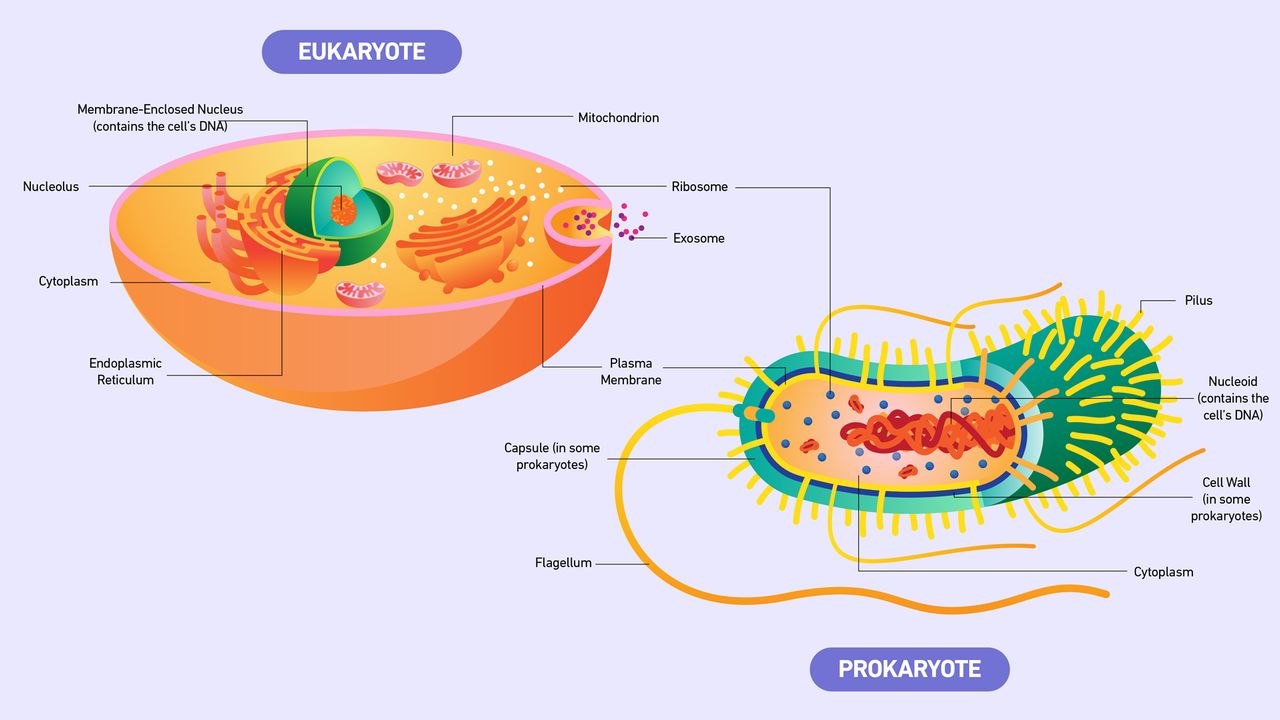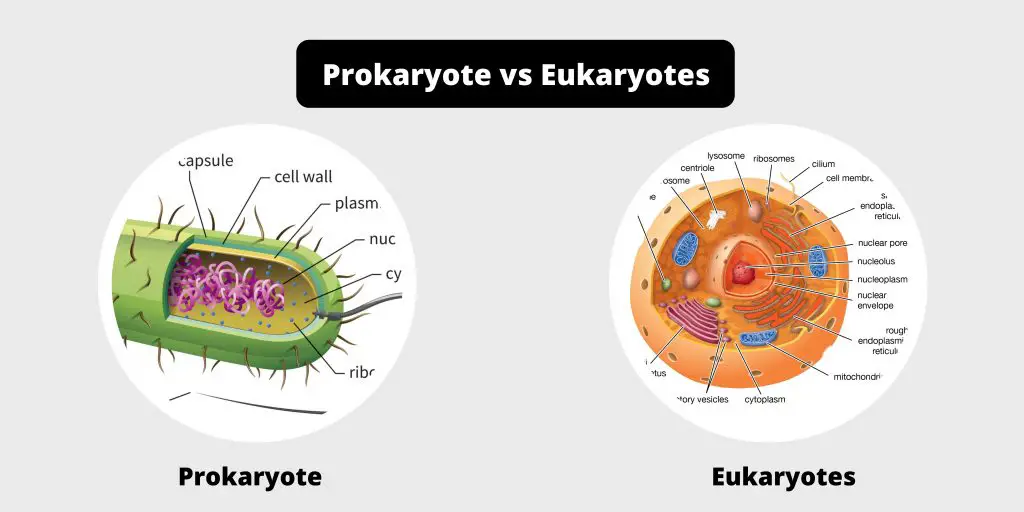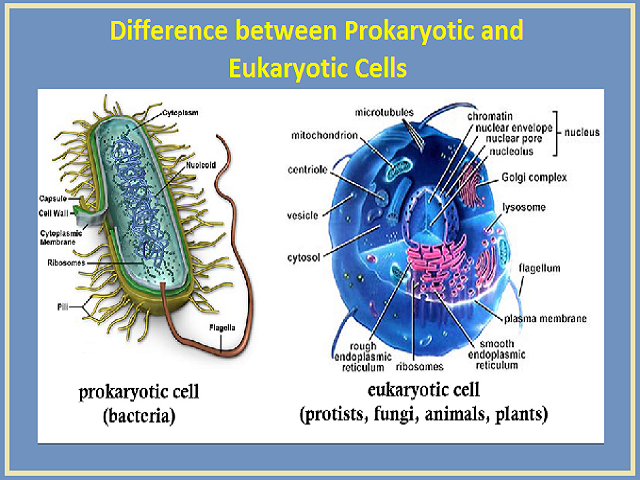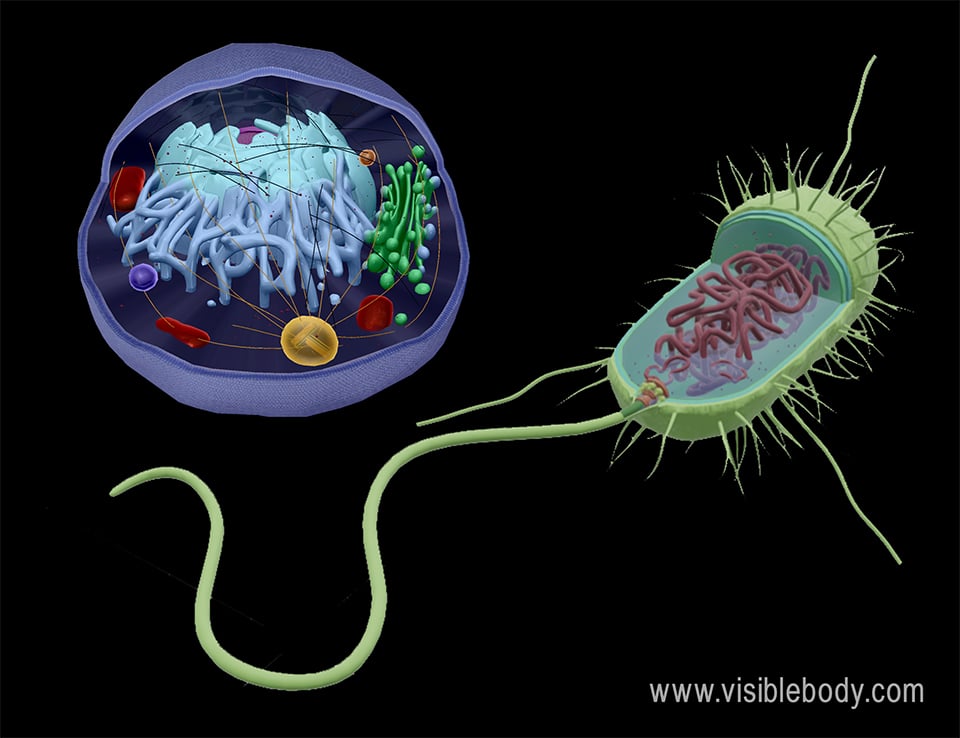Explain How Prokaryotes Are Classified Differently Than Eukaryotes
Organisms are always unicellular. More recently as technology has.
Eukaryotic cells are more complex than prokaryotes.

. The single circular chromosome is present as a single copy of genetic material in contrast to the two copies of DNA in eukaryotes. In eukaryotes vertebrates dont have a cell wall but plants do. Eukaryotic cells are found in plants animals fungi and protists.
Organisms are always unicellular. They are called prokaryotes. Prokaryotes and eukaryotes are terms used to define types of organisms.
We will shortly come to see that this is significantly different. Prokaryotes are single-celled organisms so they have fewer. The cell walls of prokaryotes differ chemically from the eukaryotic cell walls of plant cells which are primarily.
Virtually all the life we see each day including plants and animals belongs to the third domain Eukaryota. The prokaryotic genomes are also smaller in. Prokaryotes are organisms that consist of a single prokaryotic cell.
Like a prokaryotic cell a eukaryotic cell has a plasma membrane cytoplasm and ribosomes but a eukaryotic cell is typically larger than a. The main difference between prokaryotic and eukaryotic cell division is that the prokaryotic cell division occurs through binary fission whereas the eukaryotic cell division. For example each human cell has around 2m or 3 billion base pairs of DNA that must be.
The main difference between the two is the presence of a true nucleus. Eukaryotes include larger more complex organisms such as. In addition the DNA is less structured in prokaryotes than in eukaryotes.
They are about 35 billion years old and are recognizable because of their relatively complex structure and for prokaryotes relatively large cells. Traditionally the classification of prokaryotes was based on their shape staining patterns and biochemical or physiological differences. Prokaryotes are organisms made up of cells that lack a cell nucleus or any membrane-encased organelles.
In prokaryotes DNA is a single loop while in Eukaryotes DNA is organized into chromosomes. Prokaryotic cells range in diameter from 0150 µm. Most prokaryotes are unicellular and are either archaea or bacteria.
Their cells are smaller than eukaryotic cells. For example most protists are single-celled eukaryotes. They also have some difference in the.
While prokaryotes are always unicellular organisms eukaryotes can be either unicellular or multicellular. Structurally eukaryotes are larger and more complex and therefore they have more structural components than prokaryotes do. The main difference between prokaryotes and eukaryotes is that eukaryotes contain membrane-bound organelles and prokaryotes do not.
Eukaryotic cells have a central nucleus While prokaryotes dont Also the eukaryotic cell divide differently than prokaryotic cells. This means that prokaryotes do. 17 rows Prokaryotic cells are comparatively smaller and much simpler than eukaryotic cells.
A prokaryotic cell is a simple single-celled unicellular organism that lacks a nucleus or any other membrane-bound organelle. Most other prokaryotes have small cells 1. They range from 10100 μm in diameter and their DNA is.
An organism whose cell or cells are characterized by the absence of a nucleus or any other membrane-bound organelles. The difference between Prokaryotic cells and Eukaryotic cells are listed below. In general eukaryotic cells contain a lot more genetic material than prokaryotic cells.
This means the genetic material DNA in prokaryotes is not bound within a nucleus. Eukaryotes as well as protists a miscellany group made up of eukaryote-like plant animal and fungi missing one or more characteristics to be defined as purely eukaryotic differ greatly.

Eukaryotes Vs Prokaryotes Similarities Differences And Organelles

Prokaryotes Vs Eukaryotes What Are The Key Differences Technology Networks

Differences Between Prokaryotes And Eukaryotes

What Is The Difference Between Prokaryotic And Eukaryotic Cells

No comments for "Explain How Prokaryotes Are Classified Differently Than Eukaryotes"
Post a Comment